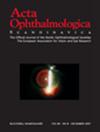Investigating the temporal variability of the tear fluid proteome for biomarker discovery
Abstract
Aims/Purpose: This study aims to investigate the intraday and day-to-day variability in the tear fluid proteome to better exploit its potential as a source of non-invasive biomarkers by assessing the consistency of tear protein abundance over time.
Methods: Tear protein composition was monitored in two individuals over three weeks. Tears were collected weekly, both in the morning and in the afternoon, by microcapillary tube sampling. Ultrahigh-resolution shotgun proteomics was used to analyze the tear fluid samples, providing a detailed profile of the tear proteome.
Results: The differential analysis of proteomics data provided a comprehensive overview of the tear fluid proteome. The majority of the identified proteins maintained consistent levels throughout the monitoring period. Specifically, only 25 proteins exhibited significant intraday variation, but no day-to-day fluctuation. These variations were observed in the morning and afternoon samples, indicating that while some proteins may be up- or downregulated within a day, the overall proteome remains largely stable.
The proteins that showed significant variation included those involved in immune response, protein synthesis, and cellular stress response. These findings suggest that while the tear proteome is generally stable, certain proteins may be sensitive to external factors or physiological changes occurring throughout the day.
Conclusions: The stability of the tear proteome indicates its viability for non-invasive diagnostic applications, making it a promising source of biomarkers for personalized medical approaches. The study underscores the need for further research into the temporal variability of tear proteins to fully harness their potential.

 求助内容:
求助内容: 应助结果提醒方式:
应助结果提醒方式:


